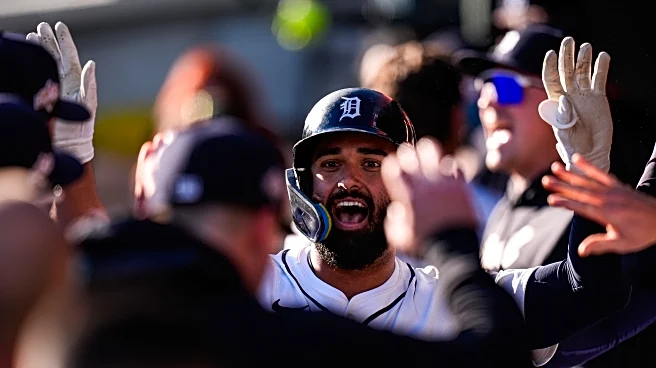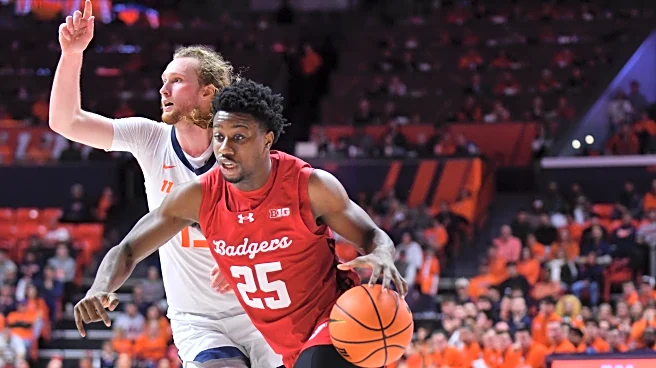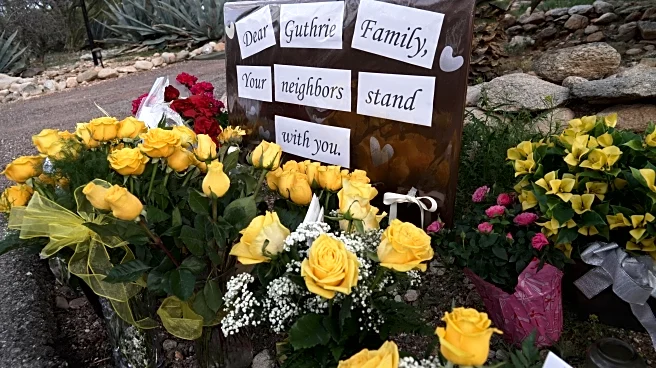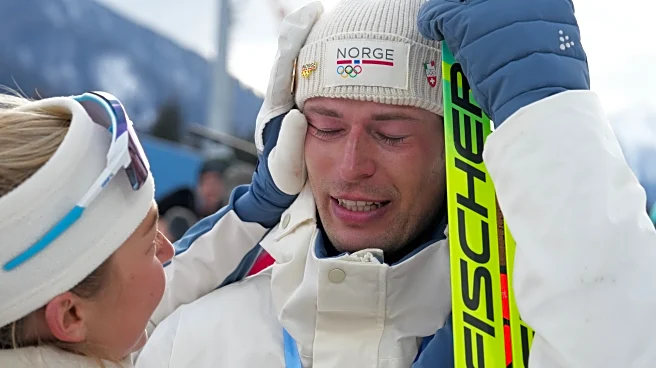Wednesday’s Game 4 of the American League Divisional Series will go down as a classic in Detroit Tigers’ history. How much of a classic can only be determined by how far they can go from here. Rallying
from a three-run deficit in an elimination game with a sustained outburst of power produced a game Tigers fans won’t soon forget. The fashion in which the lineup finally broke out took it to another level of cathartic relief.
The Tigers and Mariners are very well matched opponents and Friday’s decisive Game 5 is pretty much a toss-up, but by getting their second series this postseason to a winner-take-all contest, the Tigers have turned the funeral march of September into a very fun and dramatic postseason run so far. After a brutal September, they’re gaining in confidence as experience under the harshest spotlight in the game continues to accrue. The team, and in particular their ace, Tarik Skubal, now have a chance to exorcise some demons from their 2024 ALDS loss and take this run deeper to the ALCS against the Toronto Blue Jays.
The Tigers will be feeling good about their chances with Tarik Skubal starting for them on Friday evening. Both teams have to fly back now, so jet lag is a moot point. The momentum is back in the Tigers hands and they have the best pitcher in baseball going for them. But they’re still going to have to carry through their offensive performance from Wednesday and put up some runs for their ace.
Game 4 had several key performers, and while the offensive performers took center stage, two of the most crucial appearances came out of the bullpen. When Tyler Holton took over from Casey Mize in the top of the fourth inning, he was greeted by an infield single from Josh Naylor and a line drive single from Eugenio Suarez followed. Mariners manager Dan Wilson pinch-hit Mitch Garver in for Dominic Canzone and Holton walked him to load the bases and AJ Hinch said nope, bringing in one of his two best relief arms in Kyle Finnegan. The right-hander got Victor Robles to ground into a 6-4-3 double play, and while a run came across, that effort snuffed a big inning from developing, and that lone run was all the Mariners would get. That kept it a 2-0 games just as the Mariners looked prime to blow the game open.
The standout offensive performance of the game came from Javier Báez,. However, Riley Greene’s solo shot to take the lead after Báez tied things up was pretty huge as well. Dillon Dingler and Jahmai Jones’ doubles in the fifth sparked the rally that tied the game, while Spencer Torkelson following Greene with a double kept the sixth inning going as the Tigers opened up their lead. There were a lot of good offensive performances, and their three total strikeouts in the game was almost as big a part of the puzzle as the homers and doubles the Tigers have lacked at the plate in recent weeks.
The Game 3 offensive breakout makes perfect sense
Somewhat lost in the exuberance of finally seeing the offense really take it to an opponent were the conditions that made it likely. Just as the late game rally in Game 3 had a lot to do with Seattle using their second best lefty, Caleb Ferguson, and thus opening up opportunities for the Tigers right-handed hitters and pinch-hit options, Game 4 had certain factors that made a breakthrough for the Tigers offense more likely.
The Tigers had a clear advantage with Casey Mize taking the mound against a depth starter in Bryce Miller. While Miller actually pitched quite well and had the Tigers locked down through four innings, the other element to the pitching advantage was the fact that the Tigers had already seen the Mariners best relievers a few times, and Miller wasn’t going to be allowed to pitch deep into the game. Andrés Muñoz and Matt Brash appeared in each of the first three games of the series.
So Mariners manager Dan Wilson had some tough decisions facing him as Game 4 reached the middle innings. While AJ Hinch could go right to Tyler Holton and Kyle Finnegan, knowing he had Troy Melton to give him a long relief appearance, the Mariners had no such option. Had Wilson deployed his best right-handers in the middle innings trying to go all in to win it, he faced a scenario where if he lost, his top guys would be in rough shape for Game 5. He still had a really good lefty in Gabe Speier to turn to in relief of Miller, but that played into better matchups for the Tigers.
Parker Meadows has really struggled at the plate, so bringing in a lefty with a run in, and Dingler on second with no outs, made calling on Jahmai Jones to pinch-hit for Meadows a no-brainer. As he’s done for much of the second half, Jones came through in a big way with an RBI double. Speier then had to face another lefty masher in Javier Báez, who smoked a single up the middle to tie the game.
When Greene opened the bottom of the sixth with a titanic left-on-left solo shot to knock Speier out of the game, Wilson had to turn to Eduard Bazardo because there was no point using his best arms while behind. The right-hander is very good, but again he’s not one of Seattle’s top three relievers and the Tigers had seen him three times already. That’s a lot of work when you consider the stress of pitching in the biggest games of the season four times over a span of five days with a cross country flight in between. It looked like it, as the Tigers pounced on Bazardo for three more runs, capped by a majestic Javier Báez shot that only continued to add to the legend of postseason Javy.
Naturally, we tend to think of the home team’s hitters as controlling their own destiny. They finally broke out, they’re hot now, the momentum is on our side…these are the kinds of statements a fanbase makes when their offense has a game like that. But the conditions of the game and the opposing team’s pitching staff is a huge part of the equation. It’s not so big a surprise that the Tigers hit the Mariners hard in a game in which their top three starters and top two relievers were basically unavailable. It’s a surprise because the Tigers’ offense has been so mired in a funk over the past month.
More than likely, the offense will suddenly find itself running a little cooler in Game 5, and it won’t necessarily have much to do with them so much as who they’re facing.
The same has been true for the Mariners, of course. They struggled badly to score in Game 1, in which Troy Melton and most of the Tigers bullpen pitched well. The exception was Rafael Montero, and just as in Game 4, it was the weaker relief arms who got hit. In Game 2, the Mariners beat Skubal but only through the minor miracle of Jorge Polanco hitting two solo shots. Otherwise, the rest of the Mariners lineup did nothing.
In Game 3, Jack Flaherty had a bad game. He’s a better pitcher than Bryce Miller, but he didn’t pitch well and the Tigers made some mistakes in the field as well. The Mariners then added on against Brant Hurter and a reliever who hasn’t pitched a game in weeks in Brenan Hanifee to make the score rather lopsided.
I’m belaboring the point, but it’s just always worth paying attention to the matchups, availability, and workload on various pitchers you’re facing. Teams do a lot of their “bonus” run scoring during the regular season against the weakest pitching staffs, and the weaker parts of even good pitching staffs. This is why begging for a more consistent offense is rarely going to work out, particularly in the playoffs where there are few weak links available until late in a series when pitchers are gassed and hitters have gotten multiple looks at certain guys. For all but the top pitchers, those factors chip away at their effectiveness to a degree over a long playoff series. But against a playoffs team’s best arms it’s just always hard to do much.
The difference with the Tigers is just that they’ve struggled so badly over the last month that it all felt like a miracle to see them tear the Mariners apart for a game. Certainly they swung the bats a lot better, as evidenced by the three strikeouts all game as much as the power numbers, but it’s just easier to get right when you aren’t facing George Kirby, Logan Gilbert, Luis Castillo, or Andrés Muñoz. The trick now is carrying it through in Game 5 where they’ll again face nothing but the best the Mariners have to offer in terms of pitching.
Troy Melton gives Tigers pitching a huge boost
The final big piece of the puzzle was Troy Melton’s dominant three innings. AJ Hinch felt comfortable bringing in some of his best relievers in Holton and Finnegan early, because he trusted Melton to take the game most of the way to the house.
The right-hander has been the x-factor that the Mariners don’t have an answer for in their bullpen or rotation. As a 24-year-old rookie who was still in Double-A until June, Melton has been the best weapon on the Tigers pitching staff. He has 7.0 IP, 1 ER, 4 H, BB, 7 K in the series, and the Tigers won both games in which he appeared.
We hoped for this back in May as Melton started putting command of his slider and splitter together more consistently. That it’s turned out so well and on script has been outstanding to watch. The long term implicatins are huge, as the Tigers have a pretty good young starting pitcher to add into the rotation. The makings of the long-term pitching staff look a lot better with Melton’s success, whatever happens with Tarik Skubal over the next year. But right now, he’s a major weapon that teams haven’t seen before, and they really need to account for him going forward.
Melton’s fastball, breaking stuff and strike throwing always argued very well for his future in my opinion. Yet there was a need for a better offspeed pitch and better overall command to ensure that he could hang in the major leagues as a starter rather than getting converted to full time relief work. His issue has been the damage lefties will sometimes do against him. The remedy has proven to be the splitter, and in Game 3, that pitch was unhittable. Melton leaned heavily into his good fastball, probably catching the Mariners by surprise to a degree in a series where both teams have gone heavily breaking ball and offspeed. And when he did use the split, it drew a 100 percent whiff rate.
So where does all this leave the series heading into a decisive Game 5?
The Skubal factor
The Tigers obviously have the starting pitching advantage over anyone when Tarik Skubal is on the mound. Given that it’s a home game for the Mariners, and it’s a postseason elimination game, it’s still basically a toss-up. Tarik Skubal is certainly capable of throwing eight innings of shutout ball against anyone, but it would be foolish to expect it. Mariners fans will point to the fact that they’ve score nine runs in three games against the reigning Cy Young winner in 2025, and that’s nice for them to take some comfort from, but they’re going to be hard pressed to do any better than 1-2 runs again on Friday.
The other element that Skubal gives the Tigers is simplicity. Dan Wilson’s decisions in Game 5 are probably going to be a lot more complicated than those AJ Hinch will have to make. If things go reasonably well, Hinch will ride his ace as far as is reasonable, and then turn the game over to Will Vest. If things go a little less smoothly, he’ll have to match up somewhere with another reliever after Skubal before going to Vest, but even that decision is likely to be a simple choice between Finnegan or Holton depending on the matchup.
Another advantage for the Tigers there is that while Muñoz and Brash have pitched quite a bit in the series under some pressure, Vest pitched in the heat of Game 1, but then got three days rest before a pretty easy outing in Game 4. He should be fresher than any of the other top relievers on either team.
In both cases, the opposing lineups are very familiar with their opponent, and the advantage of Skubal is probably more the ability to go deep into the game as much as expecting him to blank the Mariners entirely. But Wilson will have to choose between Castillo and Kirby, decide whether to use the other in relief or try to save them for a potential Game 1 of the ALCS if they win, and probably will only get five innings from whoever he chooses to start. So he’ll also have to navigate more innings with his bullpen than Hinch will.
Mariners fans are pointing out that they’ve won all three games against the Tigers when Skubal pitched this year. Tigers fans retort that this just makes it all the more unlikely they can do it again. In the end, most of these year long matchup equations are meaningless. With the whole season on the line, there is no one in the game you’d rather have on the mound than Skubal, and his presence will put the Tigers in a good position to win even if the Mariners do manage to piece together some runs against him. The offense is certainly going to have to have a better game against the Mariners best arms than we saw for much of the series, but they certainly look to have loosened up in Game 4. Hopefully they carry that through with a good performance at the plate.
The Mariners will be piecing it together more on the pitching side that Hinch will probably have to, but Wilson could choose to go all in on this game and use both Castillo and Kirby. That could certainly make this even tougher.
Tarik Skubal isn’t infallible, as we saw in Game 5 of the ALDS against the Guardians last year. However, in four of five postseason starts he’s delivered strong outings and put his team in good position to win. He’s proven that he can do it consistently under pressure. That Game 5 loss last year could be added motivation for the Tigers’ ace, but he won’t need any.
The two likeliest paths for this game are that Skubal absolutely dominates, or that Skubal just has an okay game by his standards and gives the Tigers roughly six innings. In either case the Tigers shouldn’t need another massive game at the plate to take down the Mariners. The starting matchup as well as the way bullpen usage has played out in the series tips the advantage their way, countering the Mariners home field advantage. They just need to stay cool and keep putting good at-bats together one after another. If they can manage that much, they’ll be in good position to advance to the ALCS. But the task will be significantly more difficult than it was in Game 4.
Expect a very close, well pitched nail biter, but the postseason is an engine of chaos. There’s a good case for the Tigers going into this one, but the best laid plans tend to crumble in the face of the engine of chaos that is postseason baseball. There’s nothing for fans of either team to do now but hang on tight.










